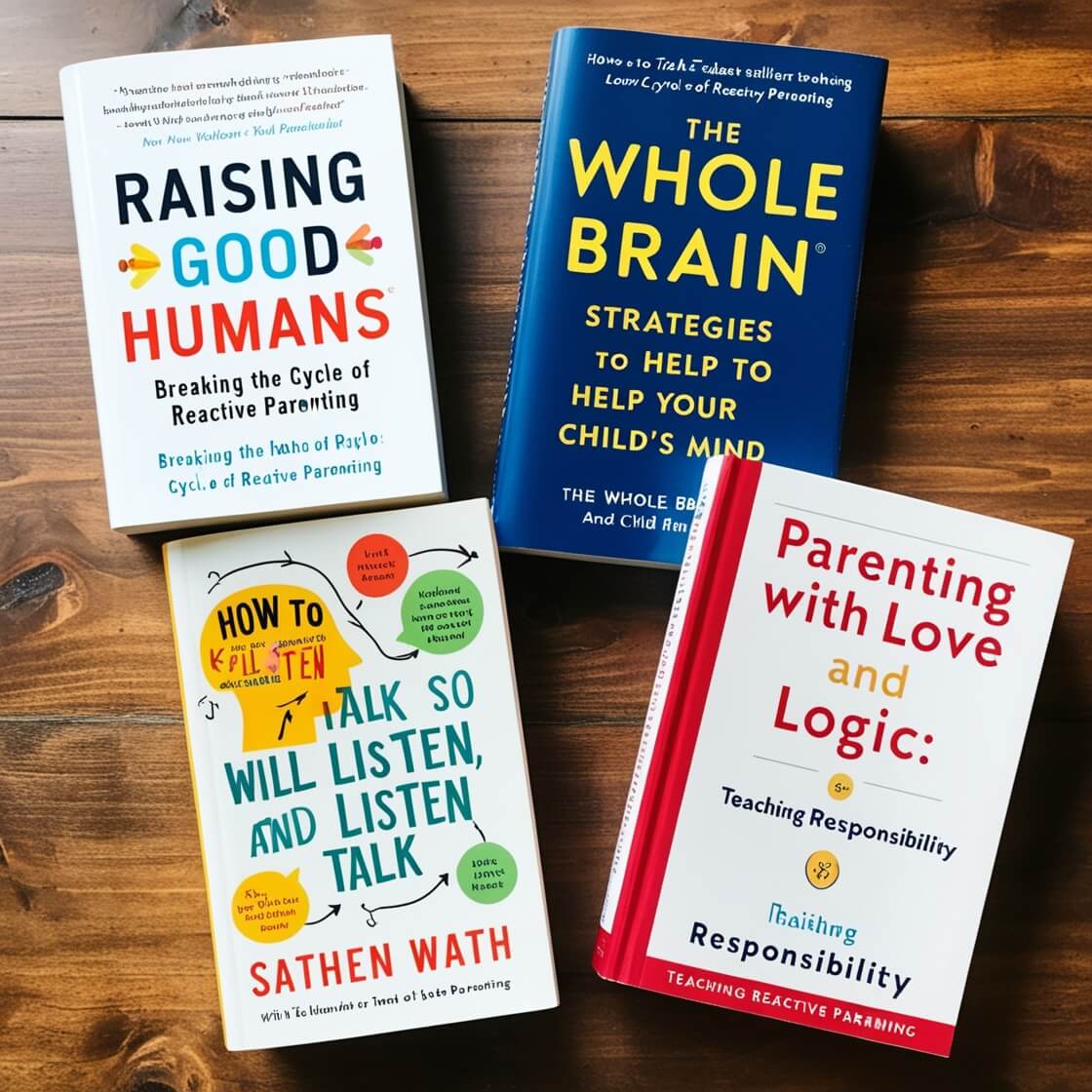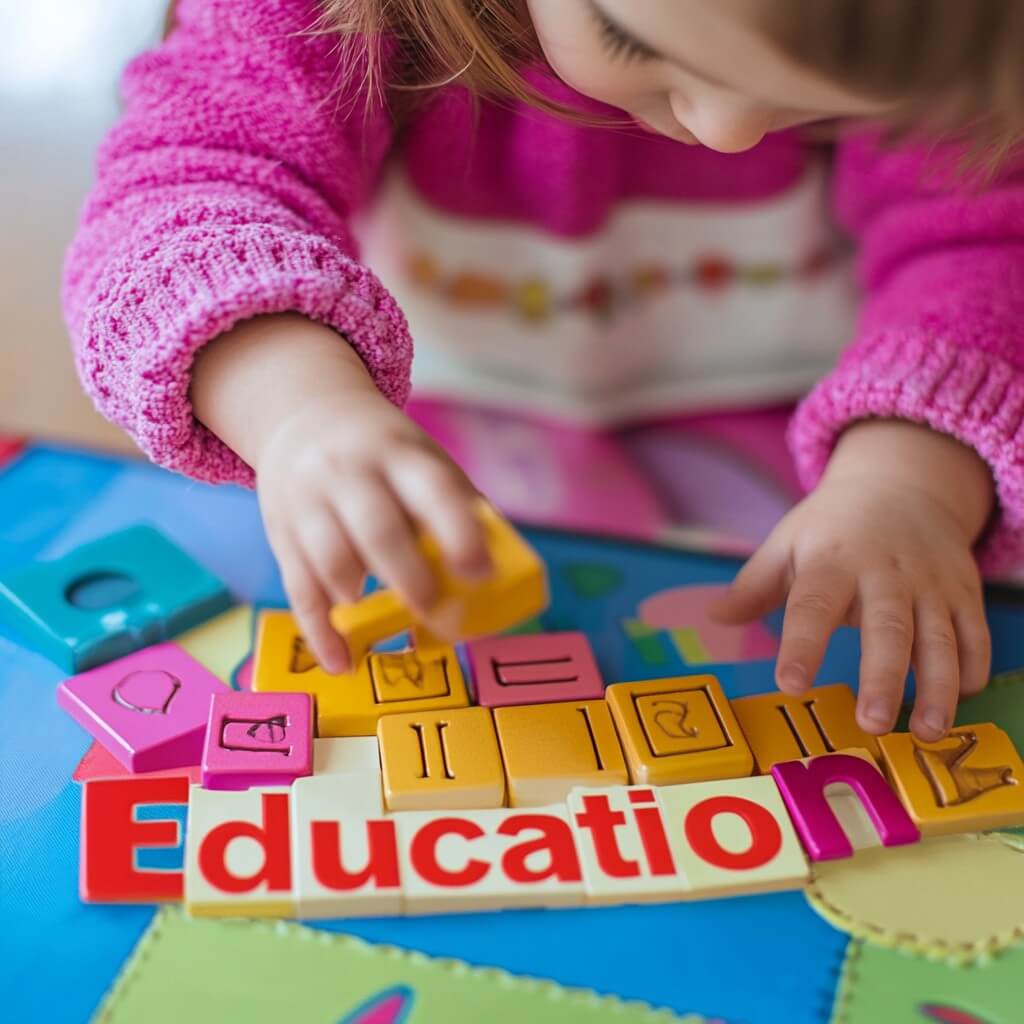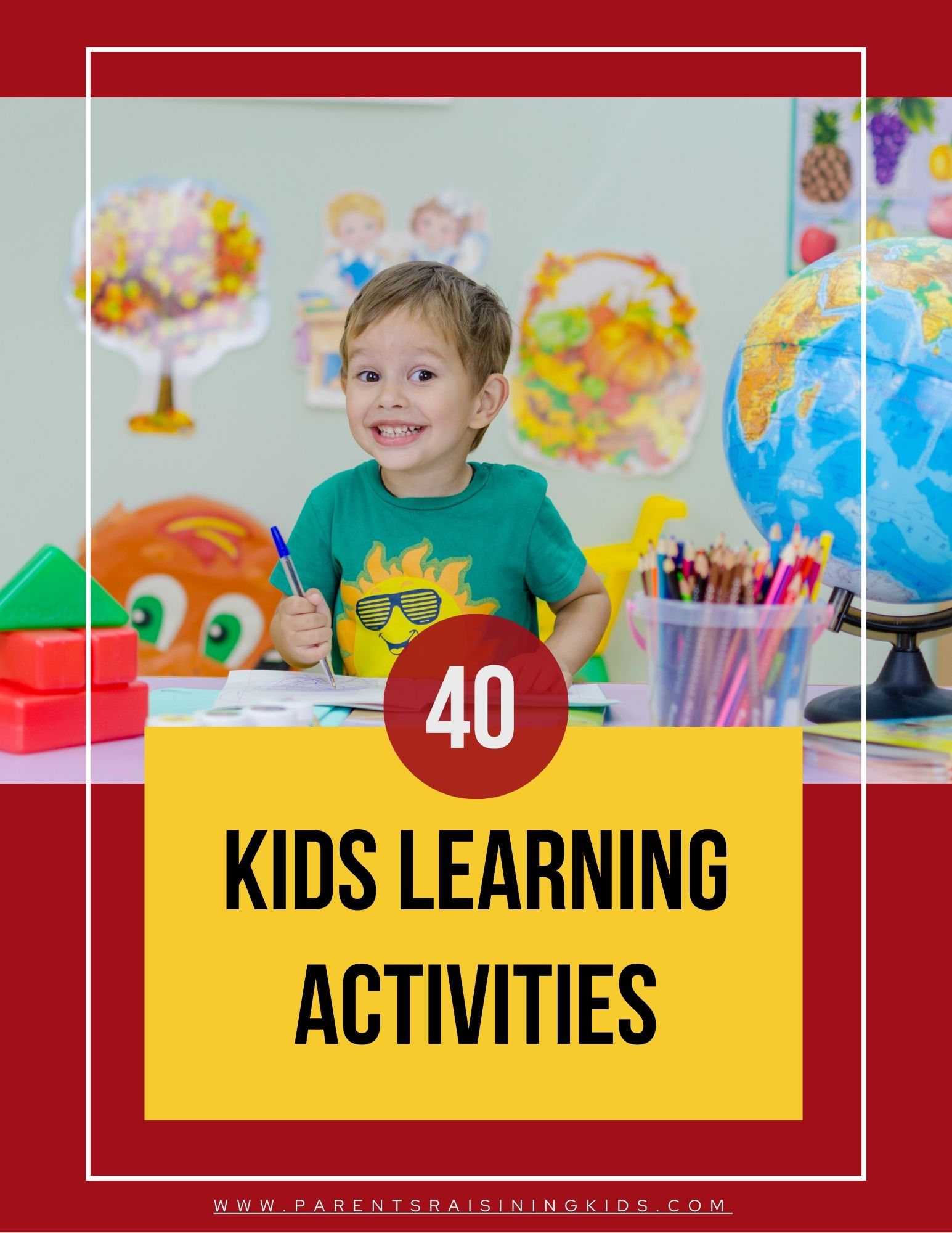Education and Learning: Supporting Your Child's Success
You want your child to have the best of everything, right? That's why it is important to you that they receive the appropriate education and learning. This journey begins early and continues throughout their lives.
 Mom is sitting on sofa reading a book to her daughter who is sitting on her lap.
Mom is sitting on sofa reading a book to her daughter who is sitting on her lap.We’ll explore some questions that parents often have, like, when their child should start reading, recognizing signs of learning disabilities, how to help their child succeed in school and more.
When Should I Start Reading to My Child?
You might be surprised to learn that the best time to start reading to your child is as early as possible. Even newborns can benefit from hearing your voice and the rhythm of language.
When you read to your baby you are bonding and helping them to stimulate brain development. You are encouraging a lifelong love of education and learning.
When they are around 6 months, they will start to recognize pictures and hear the different sounds that form words.
When they reach their first birthday, they will have learned all the sounds needed to speak. So, grab those picture books and start reading together—it’s never too early!
How Can I Help With My Child's Early Literacy and Number Skills?
Supporting early literacy and number skills is a essential part of your child's education and learning. Here are some practical tips to get you started:
For Literacy:
- Read daily: Make reading a part of your daily routine. Choose books that are appropriate for your child's age and interests.
- Talk to your child: Take in conversations, talk about your day, and ask questions that require full answers, rather than a simple yes or no answer. Eg. Questions that start with “How?” “Why?” Or “What?” This helps them develop their vocabulary and comprehension skills.
- Sing songs and nursery rhymes: These are great for language development and memory.
For Numbers Skills:
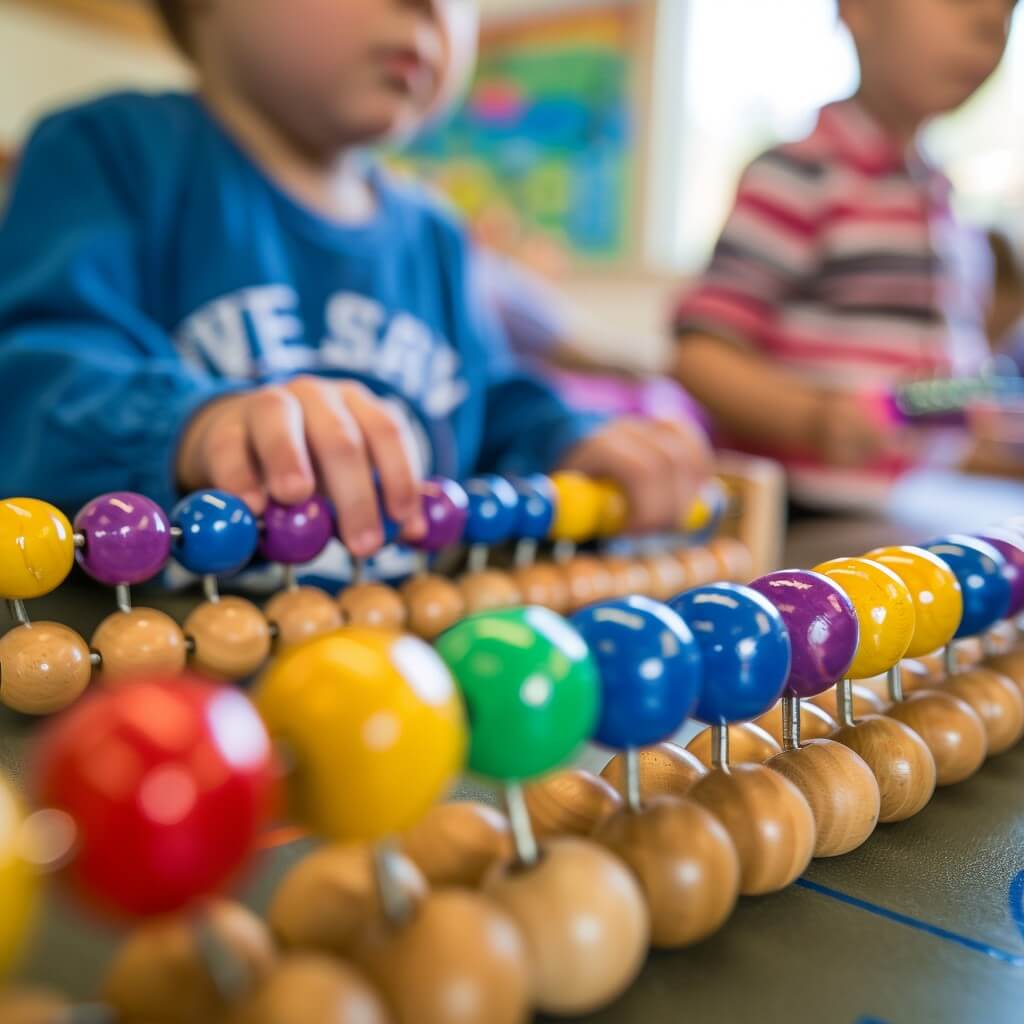 Getting an early education and learning for a boy who is playing with a counting toy.
Getting an early education and learning for a boy who is playing with a counting toy.- Count everything: Whether it’s counting the steps to the car or the apples in your shopping cart, involve your child in counting activities.
- Play number games: Simple games that involve numbers and patterns can be both fun and educational.
- Use everyday moments: Cooking, shopping, and even setting the table can become opportunities to explore math concepts like measuring, sorting, and comparing.
What Are the Signs of Learning Disabilities?
Recognizing the signs of learning disabilities early can make a significant difference in your child's education and learning journey.
While every child develops at their own pace, some red flags might indicate a learning disability:
- Difficulty with reading and writing: Struggling to read simple words, poor spelling, or trouble understanding what they read.
- Problems with math: Difficulty grasping basic math concepts, such as counting or recognizing numbers.
- Short attention span: Difficulty focusing on tasks or following instructions.
- Poor memory: Trouble remembering letters, numbers, or basic information.
- Difficulty with motor skills: Struggling with tasks that require coordination, like writing or using scissors.
- Social and behavioral issues: Difficulty interacting with peers or managing emotions.
If any of these signs sound familiar to you, you might consider talking to a specialist or your child’s teacher.
By catching any problems early you will be helping your child to succeed.
Giving Your Child Education and Learning Skills that will Help Them Do Their Best in School?
Helping your child succeed in school involves creating a supportive home environment that encourages education and learning.
Here are some tips to guide you:
- Establish a routine: A consistent daily routine helps children understand expectations and develop good study habits.
- Create a study space: Ensure your child has a quiet, organized space to do their homework and study.
- Be involved: Attend parent-teacher meetings, check their homework, and keep in contact with your child’s teachers.
- Encourage reading: Promote a love of reading by providing a variety of books and reading materials at home.
- Support their interests: Encourage extracurricular activities that your child is passionate about, whether it’s sports, music, or science clubs.
- Praise effort, not just results: It’s not just about their grades, celebrate the hard work that your child puts into their studies.
Should I Consider Homeschooling or Traditional Schooling?
Various factors need to be taken into account when you are choosing between homeschooling and traditional schooling, including your child’s needs and family’s situation.
Both options have their pros and cons in the context of education and learning.
Homeschooling:
Pros:
- Personalized learning made especially for your child's pace and interests.
- Flexible schedule that can adapt to your family's lifestyle.
- Closer family bonds and more control over the curriculum.
Cons:
- Requires a significant time and energy commitment from parents.
- Potential lack of social interaction with peers.
- May require parents to learn and teach subjects they are not familiar with.
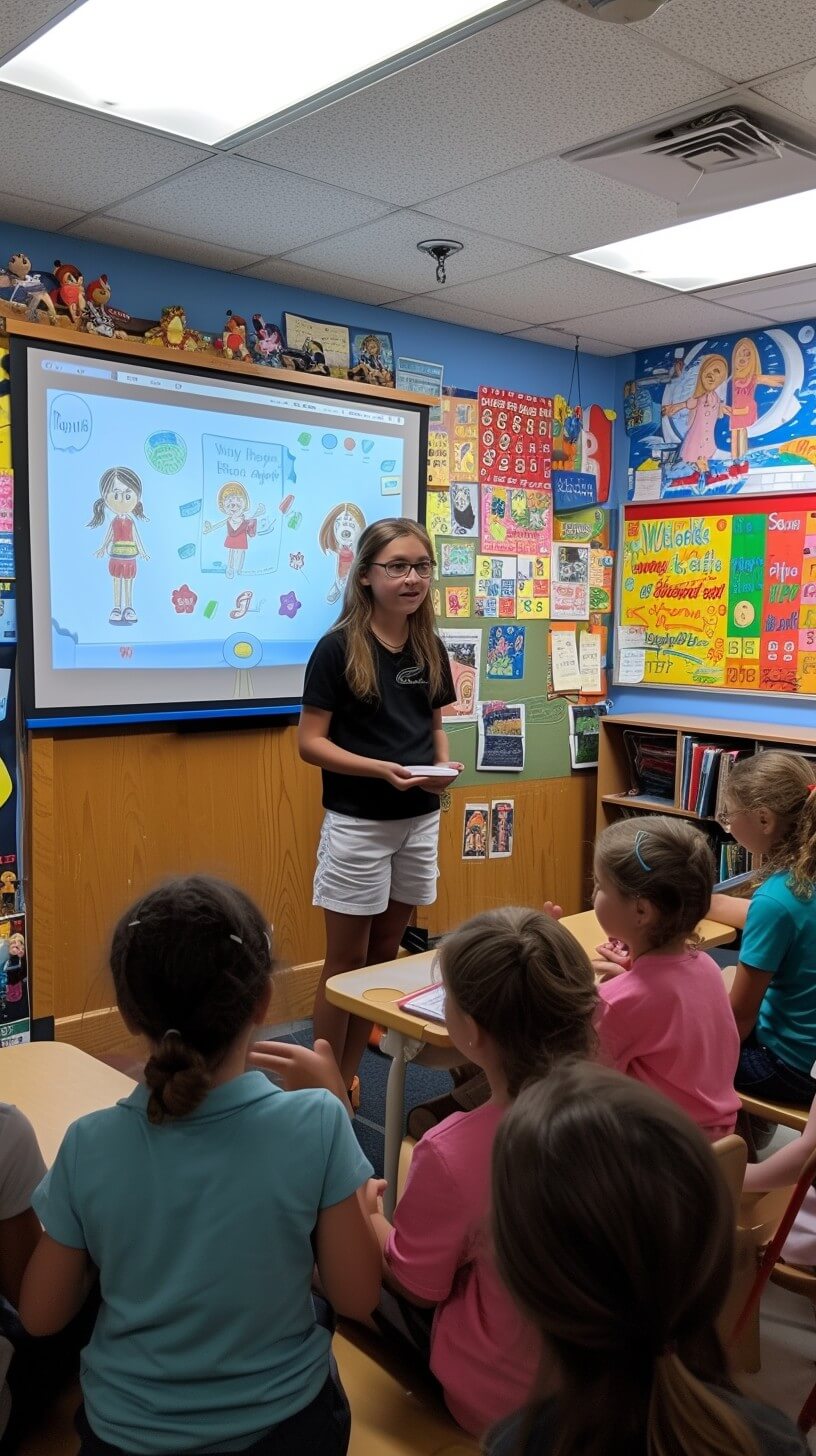 Teen girl giving a presentation in a traditional school while younger kids sit at their desks and listen.
Teen girl giving a presentation in a traditional school while younger kids sit at their desks and listen.Traditional Schooling:
Pros:
- Structured environment with a set curriculum.
- Opportunities to spend time with peers and participate in extracurricular activities.
- Access to resources like science labs, libraries and specialized teachers.
Cons:
- Less flexibility in the curriculum and schedule.
- Larger class sizes can mean less individualized attention.
- Possible exposure to negative social experiences, like bullying.
For the most part, it really depends on what works best for your child and your family.
Weigh all the pros and cons and you could even try out both methods to see what works best for you and your child.
Final Thoughts
Education and learning are lifelong journeys that start from the moment your child is born.
By reading to them early, supporting their literacy and number skills and being aware of any learning disabilities.
All of this will help them to succeed in school along with carefully considering their educational environment, you can set your child on the path to success.
Remember, any support you give along with other skills you may have to offer will make all the difference.





